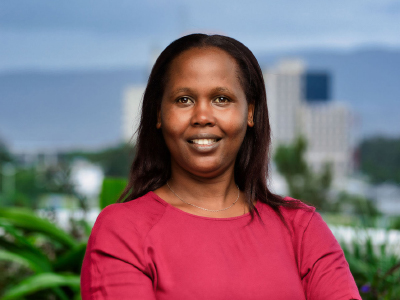Irrigation as a Service Entrepreneur Series: Story #3
Bridging India’s Water Paradox
Mallesh Tigali grew up in a family of Indian sugarcane producers who prospered when water harvests were plentiful; his grandfather and father earned more from farming than they could have in private-sector jobs. As Mallesh grew up, however, he noticed farming becoming increasingly difficult.
While most of India struggled with water scarcity, his home region faced the opposite problem. Following the construction of a reservoir in the 1940s, abundant irrigation led to chronic over-watering and monocropping. This degraded the soil, drove up input costs, and pushed farmers into financial distress.
Witnessing this “dual crisis” - the damage from both too little water in most regions and too much water in his own - motivated Mallesh to find solutions that could restore stability and dignity to agriculture.
Planting the Seed: A Vision for Smarter Irrigation
An entrepreneur with deep agricultural roots and a strong background in technology, Mallesh believed farming could again be a viable, profitable career. His time in the IT sector, particularly visits to U.S. farms in the 1990s, exposed him to precision agriculture. He saw how sensors and data were already optimizing irrigation - innovations almost unknown in India at the time.
This inspired him to found cultYvate, an “irrigation as a service”company. The company’s mission is to ease farmers’ burdens by making smart irrigation practical and accessible. Its competitive advantage lies in its low-cost, adaptable sensor systems, which help small and mid-scale farmers use data to make informed irrigation decisions.
Field Trials and Farmer Trust
Mallesh set a clear benchmark from the start: supporting farmers to consistently earn ₹100,000 in gross revenue per hectare (about $456 per acre) each year. To test this vision, he, his wife, and the other co-founders began researching crops, markets, and yield patterns, identifying bananas as an ideal starting point.
This high-value, water-sensitive crop revealed a key problem. They found that yields were strong during the dry season, when farmers carefully rationed water, but dropped dramatically in the monsoon season, when water was plentiful. The clear takeaway was that controlled irrigation was the key to unlocking higher yields.
With this insight, the team spent the next year developing a user-friendly, low-cost sensor system. This technology helps farmers monitor soil moisture and schedule irrigation precisely, improving yields and conserving water.
Cracking the Cost Barrier
Convincing farmers to adopt new technology was a major challenge, as many were skeptical of advice from an engineer seemingly removed from their world. Mallesh tackled this hesitation with side-by-side demonstrations. He compared cultYvate’s technology against conventional methods, letting the results - improved water efficiency and higher productivity - speak for themselves.
Even with proof, cost remained an obstacle. The technology was still too expensive for many smallholders. This reality pushed the team to innovate, prompting a full redesign of their business model and technology. By simplifying hardware, leveraging rural networks, and exploring shared-sensor systems, they dramatically cut production costs from $100 to $2–3 per unit without sacrificing accuracy.
Beyond Bananas
Driven by affordability, adaptability, and impact, cultYvate has expanded from horticulture to some staple crops and now supports various irrigation types. For example, in Punjab, the team works with farmers and state programs to reduce water consumption in flooded paddy fields, while in Tamil Nadu and Andhra Pradesh, they collaborate with sugar factories to improve irrigation efficiency for their sugarcane supply chains.
A Million Hectares, One Shared Goal
Today, Mallesh envisions cultYvate scaling to cover one million hectares by 2030, through partnerships and collaborations in India and abroad. For him, the goal extends beyond yield improvement—it’s about reshaping the future of agriculture to be more productive, resilient, and equitable for farmers everywhere.
About the Irrigation as a Service Entrepreneur Series
The Irrigation as a Service (IaaS) Entrepreneur Series highlights eight entrepreneurs who are developing innovative solutions to improve water access for smallholder farmers. In January 2025, DWFI brought together eight founders from seven countries for a workshop in Uganda, marking the largest-ever gathering of companies dedicated to IaaS. This series explores each of these companies’ journey with providing access to irrigation as a service – an alternative to pump ownership by farmers. Each founder offers a unique approach to providing this service. The series aims to share real-world experiences to guide future business development, research, and investment in IaaS, ultimately enhancing agricultural productivity in the Global South.
Erin Anders, DWFI Senior Program Manager, and Arianna Elnes, DWFI Communications Specialist, also contributed to this story.


